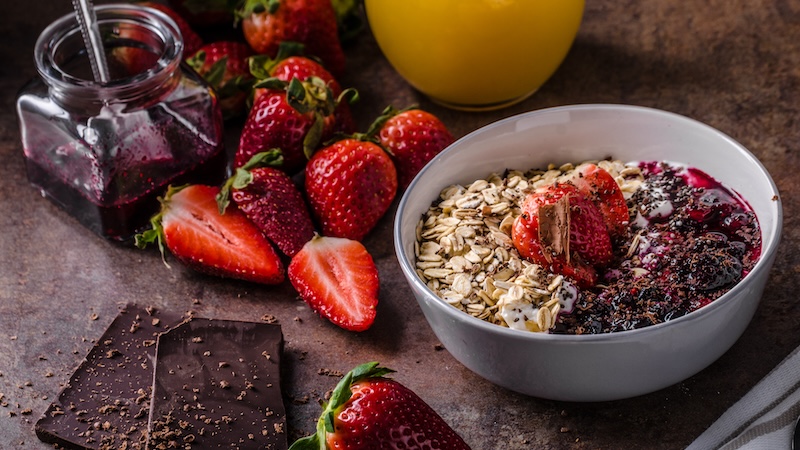Spotlight on Supplements: The Benefits of Spirulina
How this supplement may be good for your health – and when it may not

Long before it was proclaimed a modern-day superfood, spirulina was reportedly cultivated and consumed in Aztec culture. Environmental Nutrition explores the popularity and proof behind the risks and benefits of spirulina.
What is spirulina?
Spirulina is a microscopic, cyanobacterium (blue-green pigmented) whose name originates from its spiral shape. Spirulina naturally grows in mineral-rich freshwater lakes or ponds typically in Mexico, America, Central Africa, and Asia. Many species of spirulina exist, but Spirulina maxima and Spirulina platensis are frequently utilized in commercially available products.
Dried spirulina is available in powders, flakes, or capsules with high protein and amino acid content (~60% per weight), polyunsaturated fatty acids (gamma-linolenic), bioactives (phycocyanobilin, carotenoids), minerals (calcium, magnesium, selenium, iron, zinc), and B-vitamins. Spirulina’s use in food products is growing in popularity mostly in cereal products, snack foods, beverages, and as a meat substitute.
Evidence for the benefits of spirulina
Perhaps the most established benefits are improvements in risk factors for cardiovascular disease associated with the antioxidant, immunomodulatory, and anti-inflammatory activities of spirulina. A 2020 review also suggests spirulina shows improvements in weight loss, elevated blood lipids, and obesity. Additional research is needed to confirm the benefits of spirulina in various patient populations.
Spotlight on supplements: lemon balm
Safety of the supplement
Like other blue-green algae, spirulina has the potential for contamination with bacterial toxins and may absorb heavy metals or pesticides. It is important to purchase spirulina from a trusted source. There is no standard dose of spirulina, but 10 grams/day was reported to be safe for up to six months in healthy individuals. Side effects may include headache, diarrhea, or nausea.
Those who should avoid spirulina
Individuals with autoimmune diseases should avoid spirulina since it may modulate the immune system. Spirulina contains the amino acid phenylalanine, therefore those with phenylketonuria (PKU) should not consume.
Interactions
Data is limited regarding potential interactions with medications or other dietary supplements, but spirulina may interfere with immune-suppressing drugs or those that slow blood clotting. Always consult with your doctor before adding a new supplement into your diet.
Environmental Nutrition is the award-winning independent newsletter written by nutrition experts dedicated to providing readers up-to-date, accurate information about health and nutrition in clear, concise English. For more information, visit www.environmentalnutrition.com.
© 2022 Belvoir Media Group, LLC. Distributed by Tribune Content Agency, LLC.


